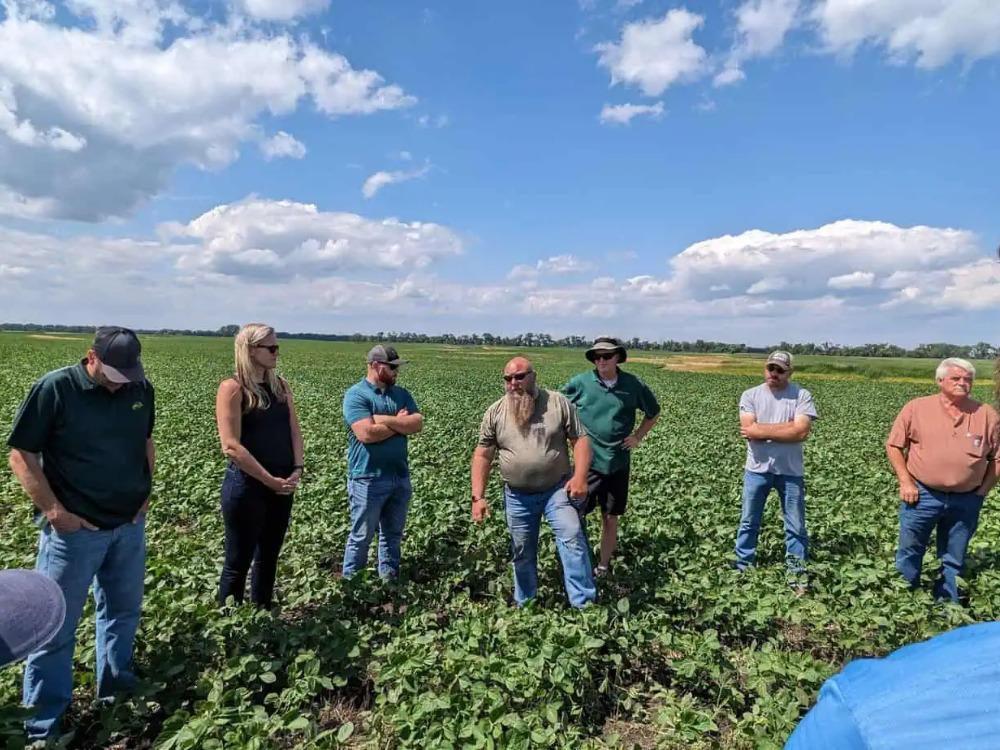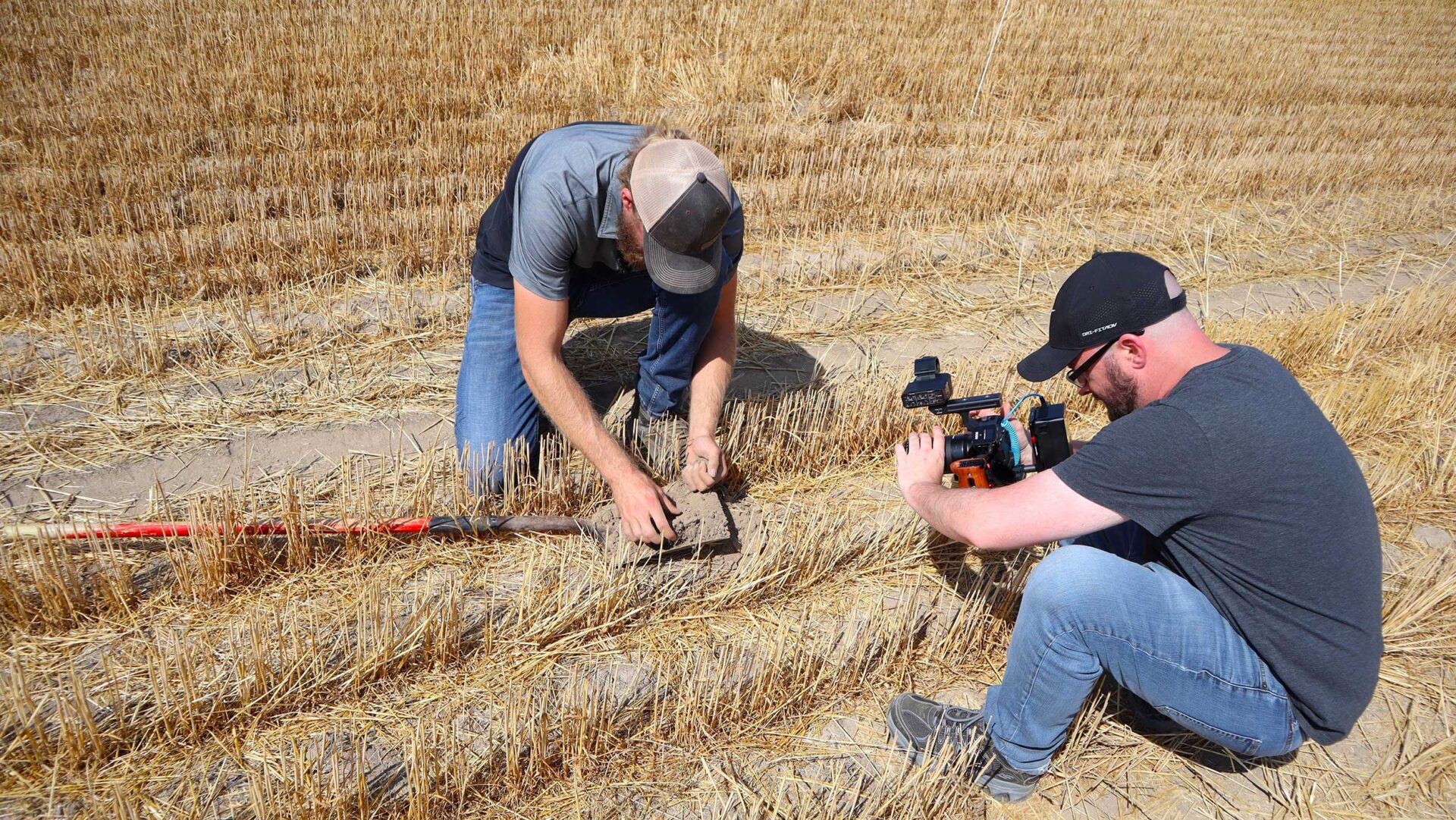- The Trusted Advisor Partnership (TAP), a program designed to upskill certified crop advisors (CCAs) with soil health training and promote regenerative agriculture, is expanding into Canada’s Manitoba and Saskatchewan provinces.
- Agrifood corporates including General Mills, PepsiCo, and Bimbo Canada will support the program alongside conservation nonprofit Nature United and Saskatchewan-based South East Research Farm.
- TAP will launch the Canadian program’s first cohort at the start of 2025.

‘A really important de-risking mechanism for farmers’
TAP launched in 2022 through a collaboration between Sustainable Food Lab, soil health expert Dr. Abbey Wick, and North Dakota State University. The program’s credo is that training farmers’ advisors — rather than farmers themselves — on soil health practices could be a more cost-effective, long-lasting way to expand regenerative agriculture across more acres.
Before that can happen, though, a skills gap around science-based soil health management must be filled, says Lana Shaw, director of the South East Research Farm.
Typically, regenerative ag practices and programs are “combinations of high tech things being pared with older cultural practices,” she says. “The problem is, that combination isn’t something that has been really well covered in either agriculture universities so far or in the more mainstream agronomy training offerings.”
To that end, TAP offers certified crop advisors what’s essentially a master class in soil health agronomy, water management, and diversified cropping systems.
Ben Harris, a program manager at Sustainable Food Lab, calls TAP “a really important de-risking mechanism for farmers,” in the form of a trusted advisor, the CCA, trying out these practices first.
“Farmers get that safety net in place in the form of a trusted advisor that will, we believe, lead to longer-term adoption and less of a risk of a return to the ‘business as usual’ state of conventional practices,” he says.
While acknowledging that there are “lots of other factors” that can help farmers maintain regenerative practices, including financial incentives, he points out that the trusted advisor partnership “is really straightforward and simple for farmers to understand.”
“They’re familiar with their role of crop consultants, and so it’s not something that is feels new and alien to them.”

Agronomists want ‘real people behind the brands’
As with the initial, North Dakota-based TAP program, several agrifood corporates are supporting the expansion into Canada, mostly by providing capital to create site-specific training programs, says Harris.
“It’s not just about soil health. There’s also water stewardship and nutrient management brought into the curriculum, and [corporate] funding is going towards the creation of curriculum that is video based and online hosted.”
In this case, the curriculum is hosted by Manitoba-based Assiniboine College, a noted institution for both its agricultural extension and its virtual learning programs.
General Mills and PepsiCo are both supporters of the North Dakota TAP program and will also support the expansion into Canada, joined by major bakery products distributor Bimbo Canada.
These corporates are required to show up to events and meetings hosted by TAP in an effort to bring together agronomists and growers with company partners, says Harris.
“Sustainable Food Lab is known for convening these events, which we call ‘Learning Journeys.’ They’re more than field trips or site visits, because they’re not just about checking in on a project or checking an M&E box — they’re designed to shift hearts and minds, and ultimately give sustainability leaders the confidence and conviction to go to peers within their organizations and socialize the need for more landscape initiatives like TAP.”
Agronomists, like farmers, want to know there are real, authentic people behind the brands that they’re supplying, he adds.
“Otherwise, a brand is just a logo on the back of a cereal box. This is really a human-centered program at the end of the day.”
There’s a real value for these companies as well, suggests Shaw: “Developing this kind of improved agronomy helps support their objects for the Scope 3 emissions.”
Different geographies, different programs
The initial cohort, which kicks off in 2025, will be open to CCAs in Manitoba and Saskatchewan. Over the next five years, the Canadian project aims to reach more than 225 independent and industry-affiliated agronomists.
Meanwhile, the North Dakota program has so far enrolled more than 30 agronomists since inception.
“One of the goals of the Trusted Advisor Partnership is creating landscape connectivity,” says Harris. “In North Dakota, the anchor is the Red River basin, and we’re working with the Red River Basin Commission, which is a a organization there that oversees water-quality projects there and also in Manitoba.”
That said, Harris acknowledges that different geographies require different approaches when it comes to regenerative agriculture.
“It’s been an illuminating process to see how much the program needs to be adapted to local conditions and needs, from both the farmer and agronomist angle as well from the corporate angle. The process of going out to prospective funders like food and beverage brands has been really different [in Canada] than in the US. Those companies in Canada are maybe a little bit earlier in their regenerative agriculture journey, so they have different ambitions compared to North Dakota.”
“It takes time to set up in a new geography.”




